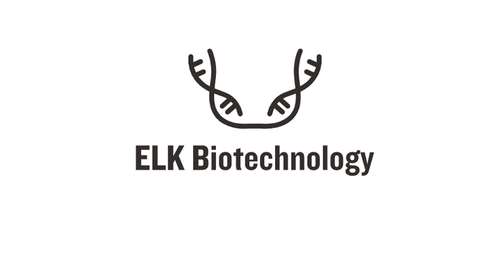Product Description
Human Kallikrein 3 (KLK3) ELISA Kit | AE63385HU | Abebio
Species Reactivity: Human (Homo sapiens)
Abbreviation: KLK3
Alternative Name: APS; KLK2A1; PSA; hK3; P-30 antigen|gamma-seminoprotein|prostate specific antigen|semenogelase|seminin
Application: ELISA
Range: 0.20-12.5 ng/mL
Sensitivity: 0.07 ng/mL
Intra-Assay: ≤4.9%
Inter-Assay: ≤7.6%
Recovery: 0, 97
Sample Type: Serum, Plasma, Other biological fluids
Detection Method: Sandwich
Analysis Method : Quantitive
Test Principale: This assay employs a two-site sandwich ELISA to quantitate KLK3 in samples. An antibody specific for KLK3 has been pre-coated onto a microplate. Standards and samples are pipetted into the wells and anyKLK3 present is bound by the immobilized antibody. After removing any unbound substances, a biotin-conjugated antibody specific for KLK3 is added to the wells. After washing, Streptavidin conjugated Horseradish Peroxidase (HRP) is added to the wells. Following a wash to remove any unbound avidin-enzyme reagent, a substrate solution is added to the wells and color develops in proportion to the amount of KLK3 bound in the initial step. The color development is stopped and the intensity of the color is measured.
Product Overview: Human prostate-specific antigen (APS) is a kallikrein-like protease present in seminal plasma. It is a single-chain glycoprotein with a molecular mass of about 33 kD that may function normally in the liquefaction of seminal coagulum. Radioimmunoassay of serum levels of this antigen (called PSA in the clinical setting) is useful in the diagnosis and monitoring of prostatic carcinoma. The full-length KLK3 protein contains 261 amino acids. It has a putative signal peptide, followed by a short activating peptide and the protease domain, which includes the catalytic triad of his65, asp120, and ser213. RT-PCR of 35 adult and fetal tissues detected highest expression in prostate. Expression was weak in colon, mammary gland, and parotid, and little to no expression was detected in other tissues examined.
Stability: The stability of ELISA kit is determined by the loss rate of activity. The loss rate of this kit is less than 5% within the expiration date under appropriate storage condition. The loss rate was determined by accelerated thermal degradation test. Keep the kit at 37°C for 4 and 7 days, and compare O.D.values of the kit kept at 37°C with that of at recommended temperature. (referring from China Biological Products Standard, which was calculated by the Arrhenius equation. For ELISA kit, 4 days storage at 37°C can be considered as 6 months at 2 - 8°C, which means 7 days at 37°C equaling 12 months at 2 - 8°C) .
 Euro
Euro
 USD
USD
 British Pound
British Pound
 NULL
NULL








